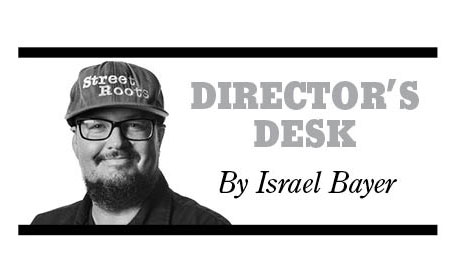In November 2016, Portland voters overwhelmingly passed an affordable-housing bond for $258 million. The bond's purpose was to give thousands of people a safe place to call home.
A coalition of more than 100 organizations and businesses citywide worked extremely hard to deliver the historic bond. That coalition was the Welcome Home Coalition, which Street Roots helped found and is proud to be a part of.
The bond itself followed a series of policy decisions by Portland officials to create and maintain more affordable housing in the city. A short-term rental tax was created to capture revenue from a changing housing market. A construction excise tax was created to draw revenue from new and increasingly profitable projects.
Let’s not forget Portland was also able to pass inclusionary zoning policies, offering incentives to developers to create more affordable housing. Policies to support tenants were implemented and continue to be refined. And historic investments were made by both the city and the county to help curb the cycle of homelessness in our community. The affordable-housing bond was the icing on the cake.
It’s been a historic couple of years for affordable-housing advocates and elected officials. Saying that, none of that matters to individuals or families struggling to maintain skyrocketing rents or those sleeping outside under bridges and in doorways.
But it’s not nearly enough. To the outside observer, it may seem like we’ve spent all of our attention, resources and political capital on homelessness and housing. So why, after creating all of these policies, are there still thousands of people sleeping on our streets?
First, both Portland and Oregon have been woefully behind in creating these policies. Other communities up and down the West Coast have been using these tools since the 1980s. While it hasn’t curbed poverty in those communities, it has created a stock of affordable housing to help support tens of thousands of people in having a safe place to call home.
Affordable housing is an essential component in maintaining a healthy society, just like our bridges, parks, schools and roads. Without a real affordable-housing agenda in our community, there would be nothing left for poor and common folk in our community. It will take years for all of these policies to begin to show results.
This week, the Portland City Council approved the policy framework for the housing bond, which will allow the city to start seeking funding proposals before the end of the month.
The framework was developed by an 18-member stakeholder advisory group, with input from nearly 1,000 community members.
Many critics have asked why the affordable-housing bond dollars that were voted on in November have taken so long to get out the door.
We are talking about taxpayer money and the public’s trust. The city and advocates wanted to make sure that we got all of our ducks in a row before actually beginning to implement the dollars at hand.
It’s my belief that the public will be happy. With a focus on families, people of color, and people with mental and physical disabilities, Portland is on the verge of building hundreds of new affordable-housing units.
That doesn’t mean we won’t have to maintain oversight of the city and to continue to push government to think outside of the box. It simply means that to do this properly, effectively and with sustainability in mind, the proper infrastructure needed to be in place. It has taken some time to get the train out of the station.
Where do we go from here?
Given the fact that we’ve been so far behind on prioritizing housing over the past two decades, there remains a lot of work ahead. The public can expect new and emerging policies to be proposed.
It’s my opinion that until housing advocates and elected officials statewide can deliver more resources and new policies on housing that local governments will have to continue to carry the water.
It’s not out of the question that new policies will be created by local governments, and that housing may appear on the ballot again in the near future. Our metro region has to continue to raise the bar on how we maintain and fund homeless and mental health services, and create more affordable-housing units.
I believe that money used from the housing bond is going to show real results. That’s not a measured message to please the public or the media; that’s my honest opinion.
The real work on the affordable housing bond starts now. Let’s build some affordable housing.
Israel Bayer is the executive director of Street Roots. You can reach him at israel@streetroots.org or follow him on Twitter @israelbayer.


